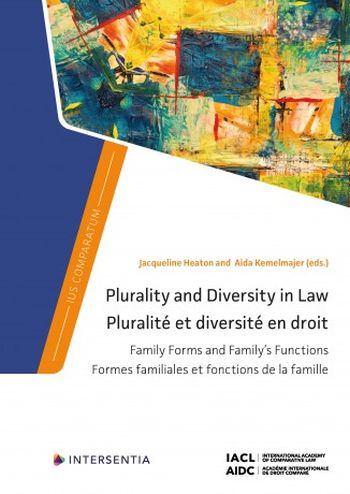
This book is based on reports on the theme 'Plurality and Diversity in Law: Family Forms and Family's Functions' presented at the Fourth Thematic Congress of the International Academy of Comparative Law in Pretoria, South Africa in October 2021.
The contributions consider two main issues. The first is whether family law recognises that a child can have multiple parents. The focus falls on stepfamilies; families where children are raised in more than one household because, for example, their parents jointly exercise custody after separation or have never shared a household but share parenting responsibilities; polygamous families; families where children have been adopted but maintain links with their biological families; families where children are cared for in terms of a kafala arrangement; families where a child was born as a result of donor-assisted reproductive technology using one male and one female gamete; families where a child was born as a result of 'three-parent' medical technology; and families where a child was born as a result of surrogacy. The contributions show that, in most of the jurisdictions, family law recognises a maximum of two legal parents and that, in some jurisdictions, those two parents must be one female person and one male person. Except in the case of surrogacy, the two legal parents are usually the woman who gives birth to the child and her spouse/partner. In some jurisdictions, multiple parents are recognised to some degree after adoption. Multiple parents are not recognised in the case of kafala but they are recognised in polygamous families in some jurisdictions.
The second main issue is which family functions are recognised and favoured by the law, and whether the presence of children in the family makes a difference in this regard. The main functions identified in the contributions are the provision of economic security and financial support to children and economically weaker family members; having and raising children; being a place where people take care of each other; providing a special bond to the members of the family; and being a refuge of love and companionship. The two functions which predominate are the provision of economic security and financial support to children and economically weaker family members, and having and raising children. Generally, the family's functions are not viewed differently depending on whether or not the family includes children. However, if the family does include children, the function of raising children may be elevated above the other functions and the scope of the provisions of economic security and financial support and of caretaking responsibilities is increased.